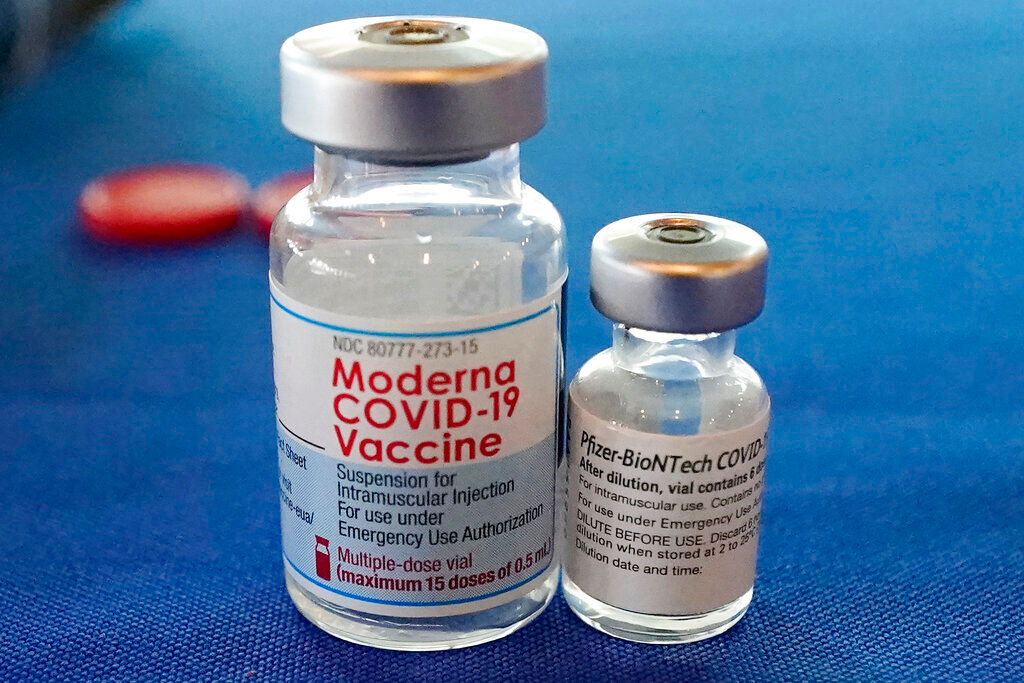The need for a booster shot or an additional jab may feel more urgent than ever as the Omicron variant of COVID-19 spreads across the country.
On Monday, the National Technical Advisory Group on Immunization (NTAGI) will meet to discuss child immunisation and giving extra doses of COVID-19 vaccine to immunocompromised people. According to NK Arora, chairman of India’s COVID-19 task force, the expert panel is expected to develop a comprehensive policy for both the additional COVID-19 vaccine dose and child immunisation.
Also Read | Joe Biden unveils new testing campaign, winter booster shot initiative
“The policy will deal with who will require the vaccine, when and how. This needs to be seen in the context that a new variant is coming and with time, we will get more information about it. Therefore, the relevance and effectiveness of the current vaccines will also become apparent with time only,” Arora told NDTV.
What is an additional dose of a COVID-19 vaccine?
People with moderately or severely compromised immune systems are given an additional dose, formerly known as a third dose, to improve their response to the initial vaccine series. Additional doses for the two mRNA vaccines were previously referred to as “third doses”, but the term has been changed to “additional dose” because those who received a Johnson & Johnson “one dose” vaccine may also be eligible for a dose based on their immune systems.
People with weakened immune systems may not develop adequate immunity after receiving two vaccine doses. As a result, an additional dose could boost their protection against the novel coronavirus.
Also Read | As concerns over omicron grow, Japan starts booster COVID vaccination
What is a booster shot?
A booster shot is simply a way of bolstering one’s immune system’s defences against a specific pathogen. It could be the same vaccine as before, with the goal of increasing the magnitude of protection by producing more antibodies.
After the protection offered by the original shot(s) has started to wane over time, a booster shot is given. Booster is intended to help people maintain their immunity for a longer period of time. A booster shot sends a signal to the memory cells, telling them to re-engage when the virus attacks.
The difference between the two
When a person’s vaccine series is finished and their protection against the virus has waned over time, they are given a COVID-19 booster. Some details will differ depending on the original series you had.
Also Read | Indians don’t need a booster COVID shot right now: AIIMS chief
People with moderately to severely compromised immune systems, on the other hand, receive an additional dose. This additional dose is designed to improve the immune response of immunocompromised people to their initial vaccine series. According to experts, giving such people a third dose could help them achieve an immune response similar to that of healthy people in general.
Third COVID-19 doses are thus provided to those with immune vulnerabilities, which could include cancer patients (in remission or undergoing chemotherapy) or organ transplant recipients. These can only be offered on a case-by-case basis, and they may not be available to the general public.
Are there differences in their dosage?
While the third COVID dose would be a “full” dose of the vaccine, booster shots currently available have a lower volume, as the third dose is only meant to increase the efficacy range.
Experts have also speculated that there may be some differences in the possible side effects. With booster shots, we’ve learned about a higher intensity or symptoms that are similar to those experienced with the second dose. A third dose, on the other hand, is unknown in terms of severity or safety.







